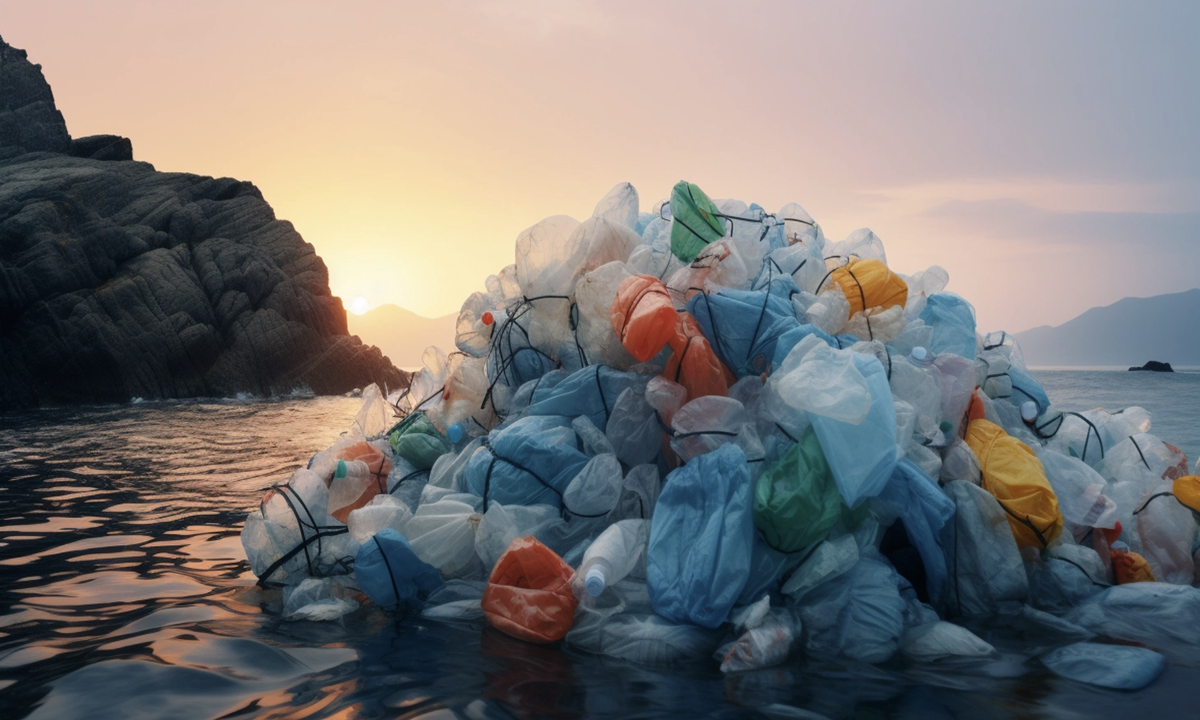UN experts have called for the inclusion of robust accountability measures and human rights principles in the final phase of negotiations for a legally binding global treaty on plastic pollution. Ahead of the last scheduled session of the Intergovernmental Negotiating Committee (INC) in Busan, South Korea, experts issued a statement emphasizing the need to address the entire lifecycle of plastics and ensure equitable responsibility-sharing among nations.
The experts warned that the current direction of the negotiations risks disproportionately shifting the burden of plastic pollution onto developing countries, which often lack the resources and infrastructure to manage its impacts. They stressed that plastic-producing countries and the corporations headquartered there must take greater responsibility for mitigating the global crisis.
“The treaty must explicitly include human rights language, such as the right to information, the right to development, and the right to a clean, healthy, and sustainable environment,” the statement said. The experts highlighted the importance of transparency, accountability, and prevention to protect human and environmental health from the harmful impacts of plastic pollution.
Transparency in Plastic Pollution Data
Transparency is critical in addressing the harms of plastic pollution. The treaty should ensure public access to comprehensive information about:
Chemicals used in plastic production.
Types and quantities of pollutants released at every stage of the plastic lifecycle.
Volumes of plastics manufactured globally.
This data is essential for monitoring state and corporate responsibilities, as well as enforcing reduction targets and safeguarding human rights.
Accountability and Funding Mechanisms
The experts proposed the establishment of a global fund to operationalize the polluter-pays principle. Such a fund would:
Finance waste management and clean-up efforts, particularly in vulnerable developing countries and small island states.
Address the "toxic legacy" of plastics, including marine gyres.
Support the transition to sustainable technologies and systems.
Plastic producers would be required to contribute to the fund, ensuring their accountability for the environmental and societal costs of their products.
Prevention Through Design and Regulation
Preventive measures were highlighted as key to curbing plastic pollution, including:
Chemical Safety: Prohibiting harmful chemicals in plastics to protect human and environmental health.
Product Design: Transitioning to designs that prioritize the elimination of non-essential plastics and enable chemically safe recycling.
Waste Reduction: Promoting a circular economy to reduce reliance on virgin plastics.
These actions are particularly crucial for developing nations that face additional challenges in scaling solutions and often depend on imported plastic products.
Human Rights and Just Transition
A human rights-based approach to the treaty would prioritize the needs of communities disproportionately impacted by plastic pollution. Key measures include:
Ensuring access to remedies for those suffering from health or environmental damage caused by plastics.
Supporting a just transition for individuals and groups relying on plastics for their livelihoods, leaving no one behind in the move toward sustainable solutions.
A Bold Vision for Global Action
The statement concluded by urging the international community to confront the plastic pollution crisis with bold and evidence-based action. Experts emphasized that the treaty must also address the intersection of plastic pollution with climate change and biodiversity loss, reinforcing its alignment with broader global environmental and human rights goals.
Next Steps in Negotiations
The Busan session marks a critical juncture for the INC, with hopes that a finalized treaty will reflect the principles of fairness, equity, and sustainability. Stakeholders now look to negotiators to deliver a framework that not only mitigates plastic pollution but also upholds and protects fundamental human rights.
By embedding these principles, the treaty can serve as a cornerstone for a healthier planet and a just global transition away from plastic dependency.











